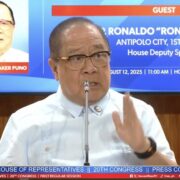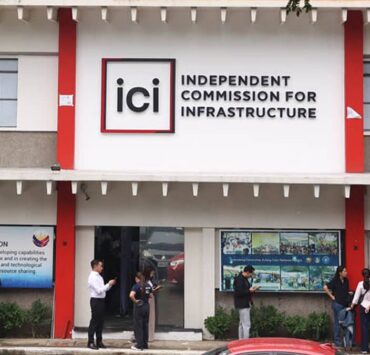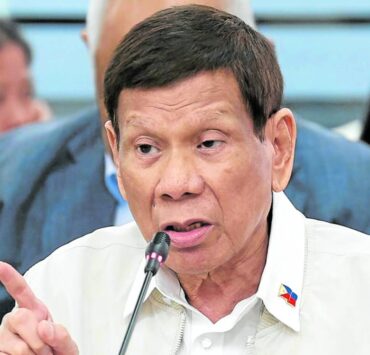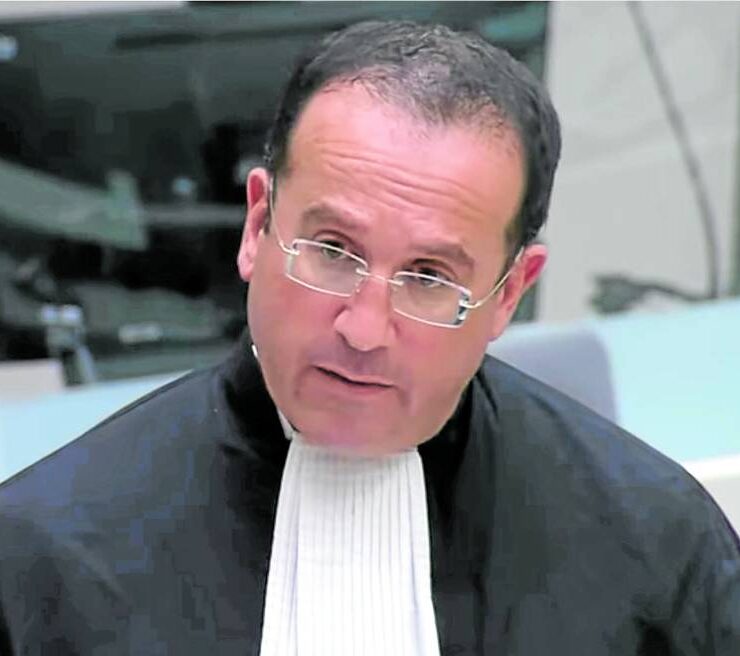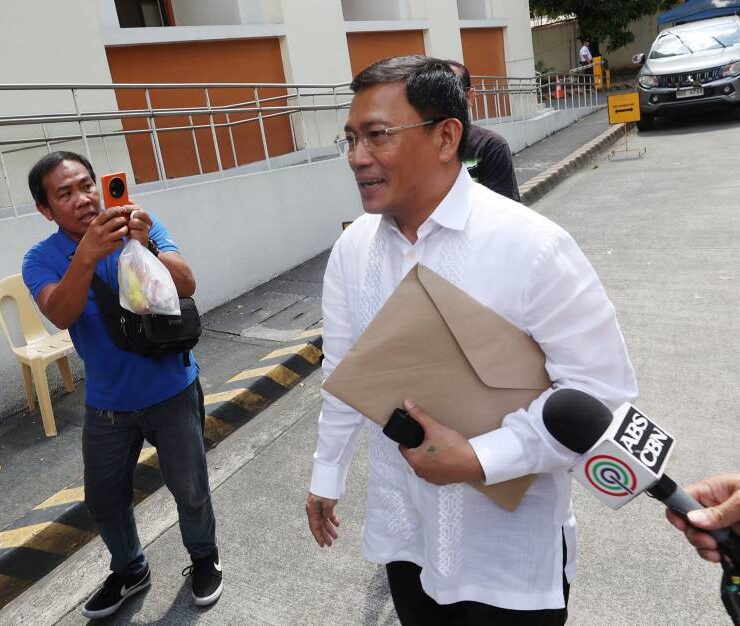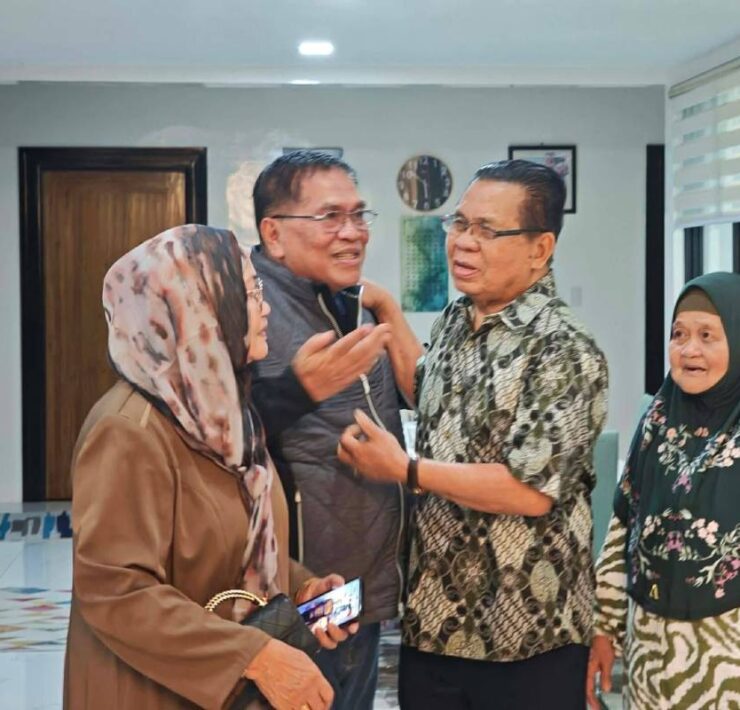Palace: Probe ‘secret decision’ on Villanueva dismissal
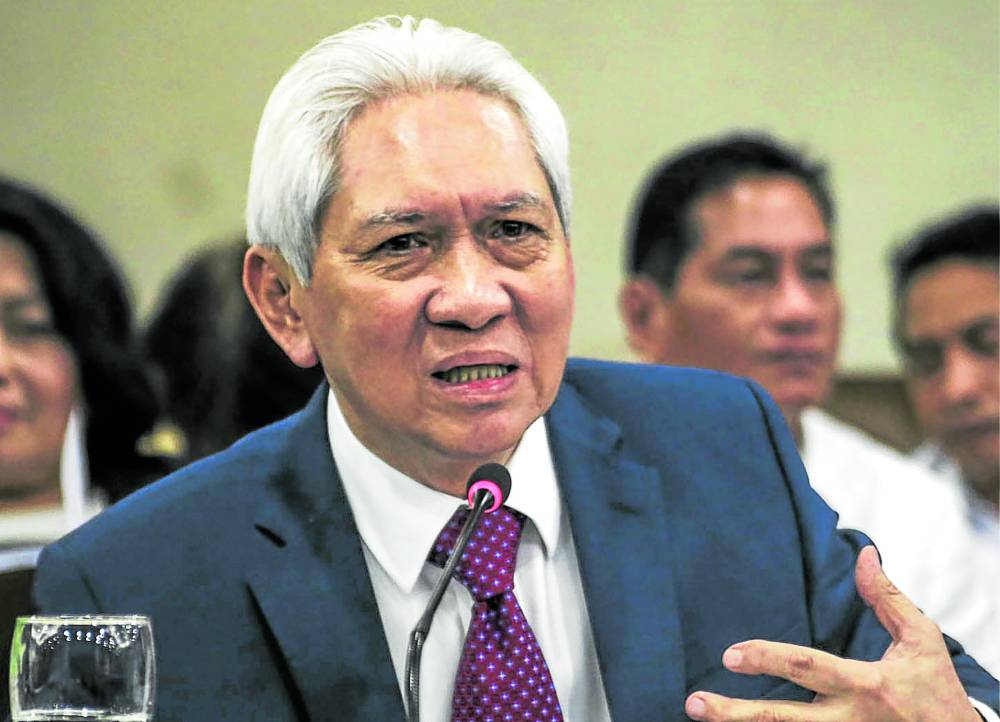
Malacañang on Friday led calls to investigate the “secret decision” made by former Ombudsman Samuel Martires in 2019 to reverse an order by his predecessor to dismiss Sen. Joel Villanueva from public office.
A law professor and a congressman also cited a need to address questions arising from a decision involving a high-ranking official that was not made public at the time it was handed down.
At a press briefing, Palace press officer Claire Castro said such nondisclosure, if proven true, could erode public trust in the country’s justice system.
“We have faith and trust in the capability of Ombudsman Boying Remulla, and even though they are an independent body, we should still tell them—through us—that this matter truly needs to be thoroughly investigated so that whatever mistakes were made, or whatever laws may have been violated, can be properly addressed and corrected by the Office of the Ombudsman,” Castro said in Filipino.
Inconsistencies
At the House of Representatives, Bicol Saro Rep. Terry Ridon said the “most important question” regarding the reversal was when exactly Villanueva filed his appeal to reverse then Ombudsman Conchita Carpio Morales’ order dismissing him from public office.
Ridon cited records and reporting that suggested inconsistencies in the handling of Villanueva’s appeal and urged Remulla to “look deeper” into these timelines.
Villanueva allegedly misused his pork barrel funds when he was a representative of an anticorruption party list group.
In June 2008, he requested the release of P10 million from his Priority Development Assistance Fund (PDAF) for what was later deemed a nonexistent project.
Ridon pointed to news reports in 2016 quoting Villanueva as saying he had already filed his motion for reconsideration (MR) in November 2016 and had left the enforcement request to the discretion of then Senate President Koko Pimentel.
The Senate Journal dated Dec. 5, 2016, likewise recorded Villanueva’s filing of the MR within the 10-day period prescribed under Ombudsman rules.
2 years to resolve?
Morales had acknowledged the MR’s existence in a Dec. 14, 2016 report, stating: “They said they are waiting for the resolution of the motion for reconsideration. So, we’ll cross the bridge when we get to it.”
“However, the supposed motion for reconsideration was never resolved by Ombudsman Morales within the prescribed five-day period from its submission,” Ridon noted. “If the MR was indeed filed in November 2016, it should have been resolved by December 2016.”
Ridon pointed out that Morales had until her retirement on July 26, 2018—one year and eight months later—to act on the motion.
“Had Ombudsman Morales resolved it within that extended timeframe, Ombudsman Martires would not have had the opportunity to act on it much later, on July 31, 2019,” he said.
SC intervention
“On the other hand, if the MR was filed out of time, then Ombudsman Martires had absolutely no discretion to entertain or resolve it in 2019, as the dismissal would have already been final and executory as early as 2016,” Ridon added.
Castro also made the same point, noting that if the MR was indeed filed in 2016, it should not have taken until 2019—or two years—for it to be resolved.
On Thursday, Remulla said he would no longer ask the Senate to implement the dismissal order against Villanueva after a decision signed by Martires in July 2019 suddenly surfaced.
He further noted that no one knew about Martires’ decision, including Senate President Vicente “Tito” Sotto III.
Paolo Tamase, constitutional law professor at the University of the Philippines Diliman, meanwhile, said the Ombudsman can bring the case to the Supreme Court for intervention if it is proven that the order was reversed in secret.
Tamase also explained that the Ombudsman, under existing laws, is not required to publicize the entire document but only to inform the parties involved.
However, he said, questions may be raised due to the “unusual circumstances surrounding the case and considering that the order was a highly public dismissal.”
Another remedy available for Remulla, Tamase added, would be to launch an internal investigation to check whether the reversal order was authentic.
“All of these questions arising because the record [was] not made available to the public […] may raise fair questions about the authenticity of that 2019 reversal,” the lawyer said.
Martires’ defense
In his defense, Martires said the Ombudsman is not under any obligation to make all of its decisions public.
“It is not the duty of the Ombudsman to be announcing [its decisions] … probably my predecessor was doing it, probably my successor is now doing it, but I did not want to be glorified at the expense of people whose guilt is not yet determined by the court,” Martires said in TV interviews on Friday.
“The reason why I was mum about this was not because I was protecting these people. I was keeping silent because I did not have the right to destroy their future,” he added.
Martires also took issue with his critics: “Why is the public throwing blame at us, just because they don’t fear us?” —WITH A REPORT FROM DEMPSEY REYES













